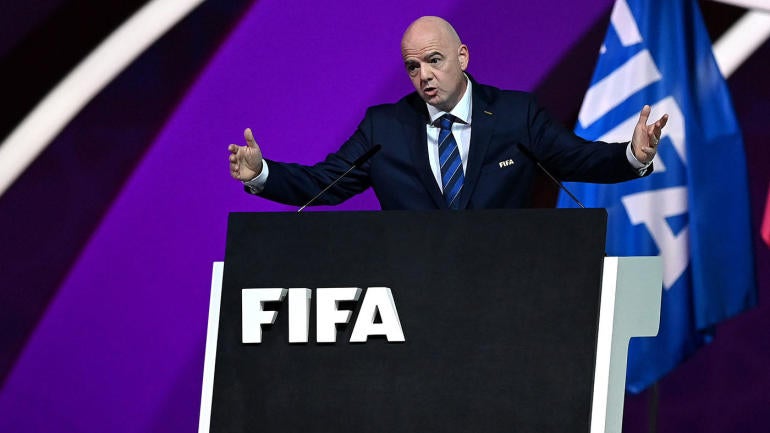
Over the next few months FIFA intends to look into the possibility of more lenient stoppage time, according to Italian newspaper Corriere dello Sport. Last week the paper reports that FIFA head Gianni Infantino met the chairman of the FIFA referees committee, Pierluigi Collina, in Doha and that they are considering some new options as the World Cup approaches. Their priority, they say, is improving the quality of the matches. One of the historical issues of soccer is something called effective playing time. Because soccer's clock never stops, most matches have a limited effective playing time compared to the real duration of the game. According to a 2001 CIES study, for example, Italian Serie A has 63.2% of game time actually played out of the actual 90 minutes, so the ball is in play for only a little under an hour of the 90-minute match.
One of the new regulations that could be introduced later this year at the Qatar World Cup is to give more power and freedom to the referees to make stoppage times longer. Currently soccer stoppage times in the second half usually last between three and five minutes, extending longer only if there has been a significant delay during the match for some reason. The idea of Infantino is to make these stoppage times considerably longer, causing games to last around 100 minutes, using that extended stoppage time to more effectively ensure that players are actually playing for longer. The main issue here is how to regulate this new approach and this is what the parties are currently discussing. The goal for Infantino is not to extend the clock necessarily but rather to avoid players wasting time after a foul, a corner kick or a substitution. The hope would be that adding stoppage time more aggressively would reduce those dead moments during a soccer match that happen too often. If it worked the hope would be that players would restart play faster because there would be no advantage to delaying, as delays would cause significantly more stoppage time to be added on than before.
On Wednesday FIFA official statement confirmed that there won't be a change in the length of the matches, as some initial reports suggested. "Following some reports and rumors spread today, FIFA would like to clarify that there will be no changes to the rules regarding the length of football matches for the FIFA World Cup Qatar 2022™️ or any other competition".
Another regulation that might be implemented soon is semi-automated offside technology. That tech was tested at the FIFA Arab Cup in 2021. This new feature could also potentially increase effective playing time in a substantial way. Speaking about the semi-automated offside, Collina said: "Technology is very important and useful in both the pre-match preparation and the decision-making process during matches. In an offside incident, the decision is made after having analyzed not only the players' position but also, their involvement in the move. Technology -- today or tomorrow -- can draw a line but the assessment of an interference with play or with an opponent remains in the referee's hands." The idea here is clear: FIFA wants to avoid players wasting time during matches and in order to do that, Infantino wants to make some changes ahead of the 2022 World Cup.
![[object Object] Logo](https://sportshub.cbsistatic.com/i/2020/04/22/e9ceb731-8b3f-4c60-98fe-090ab66a2997/screen-shot-2020-04-22-at-11-04-56-am.png)

















